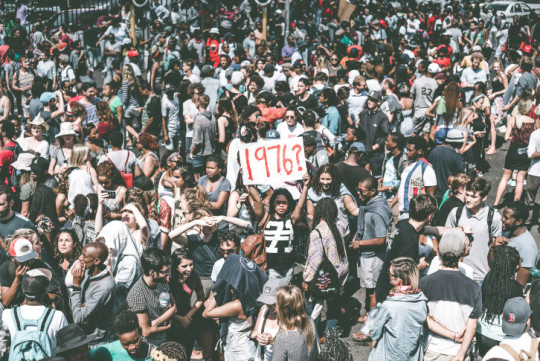Photo
the face you make when a troll just comes out of nowhere
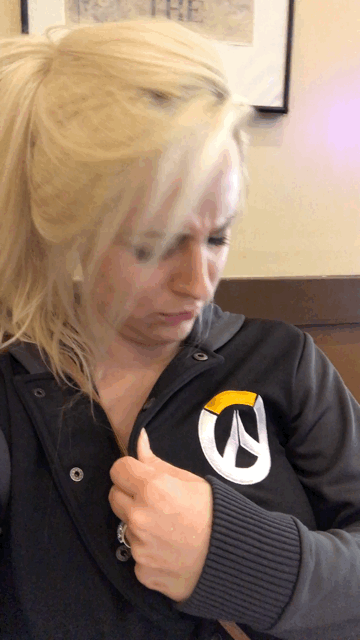
Waiter referring to my hoodie: “Do you play #Overwatch or are you just wearing that.”
Me: WHAT’S OVERWATCH *sudden distress*
255 notes
·
View notes
Photo

To Be Brutally Honest
http://advice-animal.tumblr.com
105K notes
·
View notes
Photo





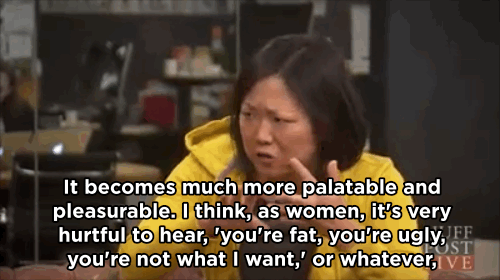


Margaret Cho: Trolls Who Call Me ‘Fat And Ugly’ Are Admitting Defeat
Margaret Cho has a simple philosophy for dealing with degrading comments about herself: If you’re debating a woman and you stoop to calling her “fat” or “ugly,” you’ve already lost the argument.
The comedian explains how to turn misogynist attacks into a “more palatable and pleasurable” experience.
258K notes
·
View notes
Text
New media and Culture- Trolling!
Culture is “the way of life, especially the general customs and beliefs of a particular group of people at a particular time” (Cambridge Dictionary, 2017). With the evolution of new media, we can see how new media and culture work simultaneously. This essay argues that platforms such as Tumblr, YouTube, Face book, Twitter, Instagram and the likes are a representation of societal norms and therefore they are a part of our culture. I for one do not necessarily think that new media influences culture, however I believe that new media is a reflection of our customs and beliefs and therefore plays a role in our culture. To prove this argument this essay will refer to trolling on the internet particularly focusing on gender trolling. As much as we denounce trolling it is part of our culture because it is a product of our society. It just doesn’t come up from nowhere in the media and this essay argues that as much as there is a belief that trolls practice trolling for amusement they actually personify inequalities in our society and hegemonic ideologies.

New media has brought social media platforms, which have become very popular as the marginalized in society feel that they have finally found a voice. These marginalized in society are the members of minority social and political groups such as homosexuals, feminists and racial minorities, (Herring et al, 2002). According to Barlow & Awan (2016) these platforms have a global reach with Twitter having an average of 350,000 tweets sent per minute and 500 million tweets per day. People use social media for a lot a lot of good, ranging from communicating past geographical boundaries and fast communication in general to activism and having a space to voice opinions about politics and things that are wrong in the world (Herring et al, 2002). Although the internet has many benefits we cannot ignore the fact that these social media platforms are also unsafe and oppressive. “Social media has also acted as a double-edged sword by creating a virtual platform for people using online hate speech as a means to target people while simultaneously being able to hide their identity”. Anonymity has always been viewed as one of the positives of social media platforms as people feel free to express themselves without being fully present. “The relative anonymity of the internet can make people feel safe talking about issues that might be considered sensitive, inappropriate or dangerous in face to face public conversation” (Herring et al, 2002: 371). It is easier to for example type I was abused or I am depressed than to actually say it looking into someone’s eyes. However trolls have taken advantage of this and used it to their benefit as they are able to engage in aggressive and violent behaviour online without having to face the consequences of criminal action as their identity will be hidden, (Barlow & Awan, 2016.

Trolling originated from “the fishing practice where a lure is dragged through the water with the intention of provoking a feeding frenzy amongst fish” (Donath as cited in Vera-Gray, 2017:65) “Some internet discourse has referred to the troll as a fictional monster waiting under the bridge to snare innocent bystanders” (Herring et al, 2002). “A troll is someone who uses the internet with the intention of targeting and disrupting people within the online environment and is often seen as problematic or even criminals” (Shin as cited in Barlow & Awan, 2016). Although trolls are perceived to be criminals, they fall under the category of being immoral and heinous as opposed to trolling being illegal. Trolling can be done because the troll genuinely wants a healthy debate or they just enjoy winding people up, (Griffiths, 2017). There is a popular belief that trolling only happens to people in the public eye however Samuel (2016) states that one does not necessarily have to be a celebrity for them to be subjected to brutal criticism or threats online for this has happened to vulnerable teenagers, grieving parents as well as mom groups. Ä study in 2014 found that one in 5 internet users have experienced trolling” (Samuel, 2016). Trolls are hostile individuals whose purpose is to actively disrupt and undermine people on online forums despite the general belief that these forums are private and secure, (Herring et al, 2002). Although online forums provide a new arena for the enactment of power inequities such as those motivated by racism, sexism and heterosexism, they have made it possible trolls to target these groups or individuals, (Herring et al, 2002). This essay therefore draws your attention to gender trolling as evidence to support the argument that trolls do not only participate in online hate because they are vindictive or they just want to be amused, they do this as a way of maintaining structure and hegemony in our society.

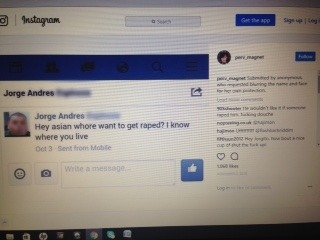
According to Mantilla (2013) gender trolling is virulent sexism online. Gender trolling specifically targets women on online forums; “it has a lot in common with offline targeting of women such as sexual harassment in the workplace and street harassment” (Mantilla, 2013: 568). Just as offline harassment of women is about “patrolling gender boundaries and using insults, hate and threats of violence and rape to ensure that women and girls are either kept out of, or play subservient roles in male dominated arenas” (Mantilla, 2013: 568). I believe that online trolling echoes and/or is a reflection of the inequalities that are embedded in our culture and a culture of misogyny that is dominant in our patriarchal society. According to Barlow & Awan (2016) culturally we as a society have tolerated violence against women and because of new media this culture goes beyond being something that takes place offline to being online as well. “The internet is not creating new forms of crimes against women, but it is creating new ways and means for crimes to be perpetuated” (Banks as cited in Barlow and Awan, 2016:3).

According to Jane as cited in Barlow & Awan (2016) trolling that is aimed at women includes charges of not being intelligent enough, hysteria, ugliness. “Much of this online abuse is routed in wider patriarchal and misogynistic discourse related to women” (Barlow & Awan, 2016:4). Women are targeted because patriarchy has this belief that they are the weaker sex and when they try and use social media platforms as a way to empower themselves for example feminists, trolls attack them as a way of trying to incite anger and ‘put them back in their place ‘of otherness. The Affect theory can thus also be applied to trolling. “Emotions should not be regarded as psychological states, but as social and cultural practices… It is through emotions, or how we respond to objects and others, that surfaces or boundaries are made” (Ahmed, 2014: 9-10). Emotions play a big role in trolling. Women generally get angry or emotional when they are attacked and gender trollers want them to get this way and view this as a victory. It is the social context of gender inequality that facilitates the violence and harassment women experience online; technology is just a tool mobilised within this context” (Jane as cited in Vera-Gray, 2016:67). However this essay would like to note that although white males have been pointed out as the major trollers because of privilege and dominance, women also participate in online hate and vindictive comments against other women. “ the fact that trolls typically target people marginalized by and because of their gender, race, age, ability, and/or sexuality suggests that trolling is marked by what Ryan Milner calls white centrality, a political and rhetorical space occupied by middle class heterosexual men aged 18-35”, (Phillips as cited in Rodrigues & Rollman, 2015). Trolling is very a part of our culture because it just does not start online and end online; people have committed suicide and sunk into depression because of online trolling, (Griffiths, 2017).
This culture of trolling has become such a problem that it has called people in power to act. According to theguardian (2016), Yvonne Cooper launched a campaign called ‘Reclaim the Internet’ in the House of Commons, which is against online misogyny, with women politicians from all parties in the UK. This is a bid to stop sexism, racism, homophobia and bullying on the internet. This proves that this culture is global. “Yvette Cooper’s Reclaim the Internet is exploring the role of police and prosecutors, the duty of Face book, Twitter and other platforms and the obligations of employers, unions and other organisations to offer protection-all areas where political pressure can get something done” (theguardian, 2016). This essay argues that gender trolling and trolling in general online, the root of the problem is the tolerance of racism, sexism, homophobia in our society and to deal with the problem online we need to deal with the culture itself.
This essay will now round up with an example of trolling closer to home. Lesego Legobane, popularly known as thickleeyoncee is a plus size model, socialite and photographer who became popular through social media, (Kekana, 2017). This plus size model in South Africa was recently a victim of trolling on Twitter after modelling at the SA fashion week. “Following her runway debut at SA Fashion Week last night, Twitter trolls went for the model. The trolling was on such a level that Thickleeyonce shared screenshots of the hatred on Instagram (See below). She included a post detailing her heartache and personal struggle with cyberbullying over the years”, (Kekana, 2017). Thickleeyonce has experienced trolling before this because of her weight. This links to how misogyny and trolling are related because people put her down and said all these harsh things like ‘a pig is better than her’, that her thighs are too big and that her catwalk would cause the ground to shake. In my experience when it comes to gender trolling, I believe that people tend to attack women who are empowering themselves. Like Thickleeyonce, she is plus size and she loves her body and herself and trolls tend to expose people like her to online hate because they expect her to be insecure and so as to put her back into ‘otherness’ or ‘otherization’, they bully her so that she can get angry and cry and she will forfeit her positivity and the patriarchal society wins. Trolling is therefore a form of censorship.
In conclusion trolling has always been said to be something that people who are vindictive partake in so as to incite negative emotions or reactions in their victims and for their own amusement. Despite attempts by social media to try and control or get rid of trolls through report buttons and enabling users to make their profiles private, this essay has clearly articulated that trolling is as a result of our culture offline. Hence to be able to adequately deal with trolling we as a society need to deal with the root of the problem. And this is how new media and culture are related.
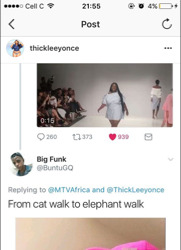

References
Ahmed, S., 2014. Cultural politics of emotion. Edinburgh University Press.
Cambridge Dictionary, 2017. Online, retrieved 30 October 2017: http://dictionary.cambridge.org/dictionary/english/culture
Barlow, C. and Awan, I., 2016. “You need to be sorted out with a knife”: the attempted online silencing of women and people of Muslim faith within academia. Social Media+ Society, 2(4), p.2056305116678896.
Griffiths, J. 2017. TAKING ITS TROLL What is an internet troll, what is trolling, which celebrities have been victims and what’s the UK law? Online, retrieved 30 October 2017: https://www.thesun.co.uk/living/3169348/internet-troll-twitter-online-celebrities-uk/
Herring, S., Job-Sluder, K., Scheckler, R. and Barab, S., 2002. Searching for safety online: Managing" trolling" in a feminist forum. The Information Society, 18(5), pp.371-384.
Kekana, N. 2017. Thickleeyonce vs Twitter. Online, retrieved 30 October 2017: http://www.channel24.co.za/The-Juice/News/Local/thickleeyonce-vs-twitter-20171025
Mantilla, K., 2013. Gendertrolling: Misogyny adapts to new media. Feminist Studies, 39(2), pp.563-570.
Rodrigues, S. and Rollman, H. 2015. Is Online Trolling a Reflection of Our Social Values? Online, retrieved 30 October 2017: https://www.popmatters.com/193518-this-is-why-we-cant-have-nice-things-2495529865.html
Samuel, A. 2016. HOW TO LIVE WITH INTERNET TROLLS. Jstor Daily. Online, retrieved 30 October 2017: https://daily.jstor.org/how-to-live-with-internet-trolls/
theguardian, 2016. When women can be misogynist trolls, we need a feminist internet. Online, retrieved 30 October 2017: https://www.theguardian.com/commentisfree/2016/may/26/women-misogynist-trolls-feminist-internet
Vera-Gray, F., 2017. ‘talk about a cunt with too much idle time’: trolling feminist research. Feminist Review, 115(1), pp.61-78.
0 notes
Photo
it actually surpasses gender
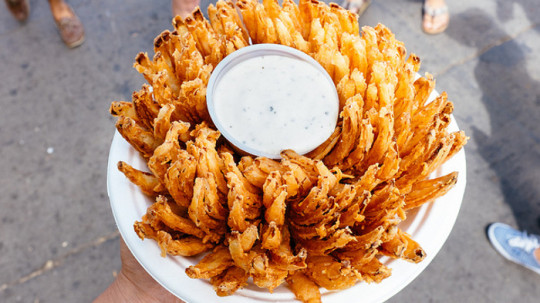
The Sugar Babies Guide to Suburban Eating
A sugar baby is a young male or female who is financially pampered and cared for by a sugar daddy or sugar mommy in exchange for companionship. Welcome back to Sugar Babies, a column about sugar babies and the food they eat on dates.
Tammy is 29 and lives in a suburb of Richmond, Virginia. As a day job, she works in the music industry, but she’s been been supplementing her income as a sugar baby for a few years now. We became internet friends about a year ago when she submitted an advice question to my blog, Slutever, asking “When is the appropriate time to tell a guy you’re dating that you moonlight as a sex worker?”
God, being a modern woman is so hard…
Continue
301 notes
·
View notes
Text
Transactional relationships are like a Job to these girls
I encourage all SB's to google their own name.
See what comes up because I have had SD’s tell me they have google searched me. It doesn’t even have to relate to being a sugar baby, but this is what employers do before they hire someone. You don’t want people to get the wrong impression of you through the internet or your past.
13 notes
·
View notes
Text
New Media And Personal Life
New media has played a big role in the way that it influences our personal lives. The way we present ourselves on social media and the uses we subscribe to the digital space have become part of our lives. The cell phone has become a powerful tool which works in structuring and restructuring societal norms. This essay looks at cell phones and the ‘blesser’ culture that has become prominent in South Africa. With regards to this; we will look at post-feminism as an ideology that is different from feminism and the way that it is a big part of the blesser culture. This blesser culture has always been present to some extent as these blessers were known as ‘sugar daddies’. This essay therefore argues that because of new media, particularly focusing on social media platforms, cell phones and blessers have caused moral panic hence affecting the personal lives of society as a whole. I also argue that because of new media, a culture that was so looked down upon and viewed as disgusting as young girls slept with older men so as to survive economically, has become flashy and admired and seen as a form of women empowerment and post-feminism. We briefly look at a case study of the ‘good time girl’ in Kenya to round up the arguments.
Cell phones have become a part of our lives, according to Swatwout & Drojak (2003); they have become just as important as putting on clothes in the morning. They are an essential and smart phones have become an even bigger priority to society as a whole. They are used as a means of communication across geographical boundaries and digital spaces have given people a platform to communicate and express themselves beyond the boundaries that have been set by society, (Benioff, 2012). Cell phones enable people to have easier access to Social media platforms such as Facebook, Instagram and Twitter and this is what gave rise to the blesser culture that came about in South Africa towards the end of 2015 (Garsd & Crossan, 2017). Women have always been marginalized as we live in a patriarchal society in South Africa (International Women’s Forum South Africa, 2011). Their personal lives have always taken a back role to male dominance, however new media has been the tool that challenges misogyny and gives women a sense of empowerment and control and this has been termed as post-feminism (Ligaga, 2014).
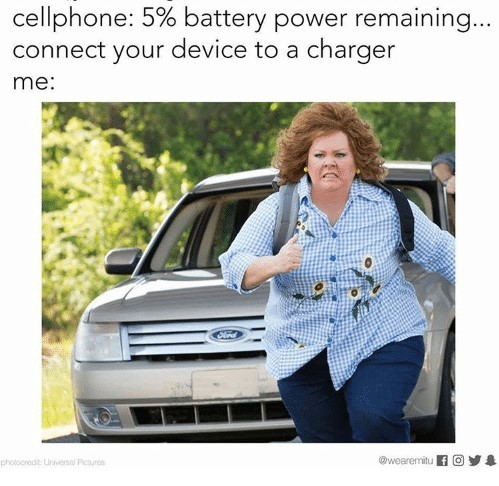
According to Garsd & Crossan (2017) the term blesser first emerged on Instagram, facebook and Twitter as younger women started posting pictures of themselves overseas, or with designer clothing and expensive weaves, just generally living a lavish life they did not have before and caption these pictures #blessed. Blessers are “older men who often have multiple girlfriends that they lavish with gifts, in exchange for sex and companionship” (Garsd &Crossan: 2017). Blessees are then the younger women that are receiving these gifts. There is a general norm that these young ladies have to been appealing to the eyes in terms their looks and these blessers have to be rich. One would wonder what the difference is between blessers and Sugar daddies, because sugar daddies have always existed. This essay argues that the hype that has been made about the blesser culture is due to new media, this is social media. Sugar daddies were something that was frowned upon by society, it became normalised to some extent but people found it disgusting that young girls were being used by older men for sex, some of these cases even led to human trafficking, (Drum Digital, 2013). When looking at sugar daddies there are connotations of women being in a vulnerable position and their bodies being exploited for the pleasure of men. Although the blesser culture has received some negativity in terms of being said to increase HIV/AIDS- Verass (2016), it has also shown women empowerment in the post-feminist era.


Post-feminism is a shift from feminism, as feminism had many contradictions. According to Gill (2007), post-feminism speaks of the transformation of feminism together with media culture. It was a sugar daddy when young girls were vulnerable, having no choice but to sleep with men for basic needs such as soap, money for electricity and for toiletries and so forth. However because of social media it is much glamorized. Critiques of feminism considered “feminism to undermine heterosexual relationships and rejected feminists as unhappy, embittered, man hating women” (Coppock et al, 2014:4). “Post-feminism is a bodily property, shift from objectification to subjectification, an emphasis upon self-surveillance, monitoring and self-discipline, a focus on individualism, choice empowerment; the dominance of a makeover paradigm, and resurgence of ideas about natural sexual differences” (Gill, 2007:149). Within the blesser culture we can see post-feminism in that these blessees do not see themselves as victims of their circumstances, most of these women are actually in the middle class and they have made the personal choice to benefit economically from their bodies because we live in a capitalist society, in a capitalist world, (Garsd & Crossan, 2017). Everything we own, we buy, people get paid to use their bodies be it doctors who use their hands to treat people, Lawyers who have to in court to defend their clients and Miners who have to go underground in the mines to get minerals.

According to McRobbie (2004) post-feminism endorses a new kind of feminism in which connotations of female sexuality are those of consent, equality, participation and pleasure. This has been made possible by the cell phone, which enables these women go on Face book pages such as BlesserFinder which is a page young girls can go on to find older men who are willing to spoil them and they in return will be trophy girlfriends or give them sex in return. The Blessees can also take pictures of themselves living the life happily on holiday in different parts of the world, or at the Diamond Walk in Sandton wearing expensive designer clothing. This shows how because of new media the script has been flipped. Instead of hiding and being ashamed of dating older men known as ‘sugar daddies’, these young girls are owning it and clearly coming out that this is the choice they have made and they are not the victim. These relationships are transactional and consensual. There is equality in that each of the parties, this is; the blesser and the blessee want something from the other hence there is no male dominance or female vulnerability. This culture has however become a source of moral panic for the community at large. Because of cell phones parents no longer have control over their young girls; they can go on social media and find a blesser without them knowing.
We will now look at the case study of ‘the good time girl’ this is a term given to wayward women in Kenya who are young, educated and beautiful and they are willing to engage in transactional relationships whereby they trade their bodies for money, (Ligaga, 2014). This study does not necessarily use the terms Blesser and Blessee but it does show a very similar situation of transactional relationships between older men and younger university girls and how they connect to post-feminism and new media. The connection between the ‘Blessee’ and the ‘good time girl’ is “the good time girl represents young women who appear to disavow domestic duties and embrace explicit eroticism” (Thomas as cited in Ligaga, 2014:253).With regards to women’s sexuality, “the space of the internet is seen as an important one for gaining access to narratives of resistance, defiance, and refusal to fit in with existing public frames” (Ligaga, 2014: 150). The main cause of the moral panic that was discussed earlier on maybe due to the fact that women have always been imprisoned by normalizing structures of family, the religion and school, however new media and university institutions have given these young women a sense of freedom, (Ligaga, 2014). Therefore the moral panic is more about how the social order has been threatened that anything else as the ‘good time girl’ challenges dominant perceptions of society, (Ligaga, 2014). According to Masvawure (2010) transactional relationships are not always because of poverty but a modern lifestyle as the upper middle class use them to maintain their privileged class position.
In conclusion through the cell phones and ‘Blesser’ culture new media has played a critical role in influencing our personal lives. These transactional relationships that became a phenomenon because of social media have challenged the societal norms of male patriarchy as women have changed the narrative of being the ‘used’ to making the choice to use their bodies as they please. As discussed this is part of post-feminism which is about the empowerment of the individual through their personal choices than being about women as a whole. The cell phone and social media has changed the lives of young women as they have glamorized the sugar daddies culture to expensive trips overseas and designer handbags-they have owned it!
References
Benioff, M. 2012. Welcome to the social media revolution. Online, retrieved 30 October 2017: http://www.bbc.com/news/business-18013662
Coppock, V., Haydon, D. and Richter, I., 2014. The illusions of post-feminism: New women, old myths. Routledge.
Garsd, J. And Crossan, A. 2017. What it means in South Africa when you are #Blessed. Online, retrieved 30 0ctober 2017: https://www.pri.org/stories/2017-08-10/what-it-means-south-africa-when-you-are-blessed
Gill, R., 2007. Postfeminist media culture: Elements of a sensibility. European journal of cultural studies, 10(2), pp.147-166.
International Women’s Forum South Africa (IWFSA), 2011. THE STATUS OF WOMEN IN SOUTH AFRICA. Online, retrieved 30 October 2017: https://www.iwfsa.co.za/index.php/.../3_d3c47dc5de9c83abeac5ad81458c59c5
Ligaga, D., 2014. Mapping emerging constructions of good time girls in Kenyan popular media. Journal of African Cultural Studies, 26(3), pp.249-261.
Masvawure, T., 2010. ‘I just need to be flashy on campus’: female students and transactional sex at a university in Zimbabwe. Culture, health & sexuality, 12(8), pp.857-870.
McRobbie, A., 2004. Post‐feminism and popular culture. Feminist media studies, 4(3), pp.255-264.
Swartwout, J. and Drojak, R., 2013. The power of cell phones!. Verbum, 10(2), pp.26-29.
Verass, S.2016. Blessers: Inside South Africa’s sugar daddy culture. Online, retrieved 30 October 2017: http://www.sbs.com.au/topics/life/culture/article/2016/05/26/blessers-inside-south-africas-sugar-daddy-culture
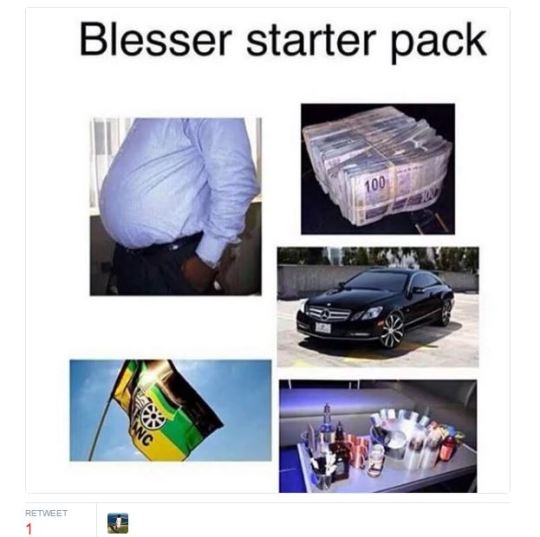
0 notes
Text
TUTOR STUDENTS FOR EXAMS
“Now it’s time to #protestnpass.
We’re mobilising academic back up forces for tutor support before exams. Unfortunately we cannot guarantee that we can reach everywhere and assist with all courses, but we’ll try our best.
We will match students with tutors based on location, year of study and degree/course.”
https://docs.google.com/forms/d/1S0cFU9VH5sgILq9k0-Il96SxNF2mM06MOFeyqYNCvhM/viewform?fbzx=2687500597500270482
#ProtestAndPass #DecentraliseEducation #DecoloniseEducation
2 notes
·
View notes
Text
This shows how the community came together Lawyers and Doctors for a great cause of radical democracy
LEGAL ASSISTANCE
Legal support for detained students in Gauteng, NorthWest, Free State and Limpopo:
Keamogetswe Thobakgale can be contacted on 078 685 5508. He will make sure someone is sent out as quickly as possible. In the event that Kea can’t be reached, Nomzamo Zondo can be contacted on 071 301 9676. It is critical to emphasise the need to verify that there has been an arrest before activating this channel of support.
Attorneys can also be reached via www.probono.org or e-mail [email protected]
Legal Aid: 0800 110 110
Legal Resources Centre: 021 481 3000
Lawyer on the ground in the Eastern Cape: Contact Lisa Draga – 072 650 0214
See also: Young Lawyers Against Police Brutality // https://www.facebook.com/Young-Lawyers-Against-Police-Brutality-941331452583404/
1 note
·
View note
Text
A Social Media Revolution For Radical Democracy
New Media has played a big role in defining political life in contemporary South Africa as well as in the world in general. Social media has particularly changed the way that democracy is structured, fighting against neoliberalism and advocating for radical democracy. We will be looking at the case study of FeesMustFall which was a movement which ignited a series of protests that have been taking place in South Africa since 2015 by university students who are advocating for the free education that they state was promised to them by the government. These protests unfolded on social media, mainly Twitter but Facebook as well. Using this case study as a lense, I therefore argue that hashtag FeesMustFall was a form of radical democracy which was made possible by the existence of social media. This will show us how new media has an impact on political life in the way that it challenges the existing power structures and gives the marginalized in society a sense of freedom and equality- a voice they have never had before.
Shortly after Apartheid, the South African National Congress (ANC) came into power in 1994. They took a socialist standing which was basic-needs oriented, political and economic growth was owned by the community as a whole, (Peet, 2002). According to Peet (2002), the ANC promised that the majority of the wealth will be owned by the black majority who suffered the most during Apartheid. However Neoliberalism has taken over-“the people of South Africa do not have social control over the direction taken by the national economy”, (Peet, 2002: 55). The rich have become richer and the wealth that was supposed to be owned by the black majority is still white owned, (Sibeko, 2017). “Democracy has become a universal signifier of political legitimacy. No major political programme or regime wants to be labelled undemocratic”, (Dahlberg& Siapera, 2007:1). The concept of democracy has become a fantasy in post apartheid South Africa as corruption is rife and those were supposed to benefit from post apartheid democracy are poor and marginalized. Hence political systems are not really living up to actual democracy.
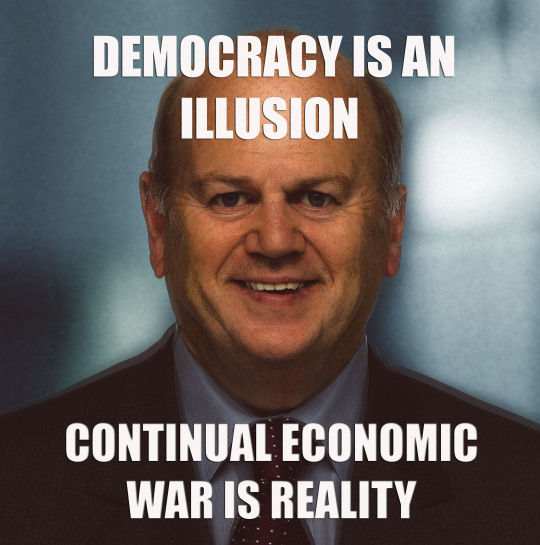

New media, as we particularly focus on Social media has been a tool towards radical democracy. Firstly we will tackle what radical democracy is then discuss the role that it is playing with regards to social media. “Radical democracy is the return to the origins of the democratic revolution beyond limits that have been placed upon it by the major modern political articulations of democracy, most prominently liberal democracy”, (Dahlberg& Siapera, 2007: 7). Dahlberg & Siapera (2007), states that those who critique the concept of democracy are demanding a say in decision making on local, national and global issues. They want radical democracy which involves equality and liberty. According to Bosch (2016) South Africa finds itself in a period of growing inequality socially, economically and politically. Because of a facade of democracy, the governments and most governments around the world, is not held accountable for the promises it makes. Instead of a government that is ‘for the people, by the people’ people in power have become self serving. This is where radical democracy comes in, it is “the return to the classical understanding of democracy, which involves the twin imaginaries of equality and liberty for all in the political process of ruling and being ruled”, (Dahlberg & Siapera, 2007:7).

The digital space has played a large role in allowing people to express their political opinions in a world where corruption is at its peak when we look at governments around the world. The internet has evolved; moving from being a space meant for academics and computer geeks to becoming a platform for politics, for those in government and the general public, (Ward& Vedel, 2006). According to Papacharissi the digital space acts like a virtual sphere alike to Habernas’s public sphere, whereby all people are equal and they can voice their opinions regarding politics. The role of the internet has thus been that of strengthening the voice of the marginalized and oppressed groups that feel cheated by the system and its ‘signifier democracy’ which is not actual democracy. The internet allows the public to contest dominant discourses and power structures, (Dahlberg & Siapera, 2007). Social media platforms such as Twitter and Facebook have given the platform for activism and freedom of speech which is a big part of how #FeesMustFall spread out across South Africa.
Fees Must Fall is a movement that started at University of the Witwatersrand in 2015. It was led by students at the University who demanded that the fees of higher education institutions is too high and they were questioning the free education that was promised to them by the ANC government at a conference in Polokwane in 2007, The Citizen, (2016); as well as in the Freedom charter and the constitution. It proceeded from being only a hashtag used for the shutdown of a specific university to being a national phenomenon; this #UCTFeesMustFall or UJFeesMustFall, #WitsShutdown to simply #Fees Must Fall, (Findlay, 2015). Social media made this possible, for it made it possible for something that started in Braamfontein in Johannesburg to be something taking place in Cape Town, Port Elizabeth, and Limpopo and talked about globally.
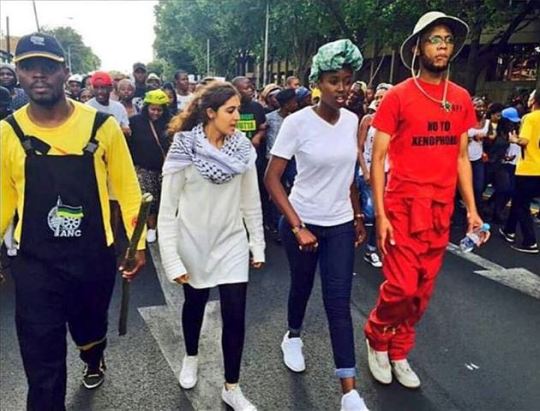
Social media made it possible for the students to organize themselves in terms of what was taking place the next day, where they were meeting and what time, (Peterson et al, 2016). Social media also made it possible for the nation as a whole to get involved; this is parents, lecturers the community to help with food donations, water, and moral support and stuff that the students needed. Instead of news being reported Journalist alone in newspapers the next day or waiting for the evening news to get updates, social media made it possible for the students to control the narrative of the protests by uploading videos of the protests on social media, (Peterson et al, 2016). This would cut down on the number of mainstream media publications who would have wanted to show a bias towards the students by defending the state and painting the students in a bad light, only publishing videos that support the other and paints the latter in a bad light. Media coverage also made it possible for the movement to become widespread and gain support overseas such as in New York and London through solidarity protests, (Davids & Wahgid, 2016).
Social media also made it possible for students to voice their frustrations and articulate their demands, (Findlay, 2015). Because of hierarchical power structures students cannot go to the Vice Chancellor directly or the President or Minister of higher education directly, social media creates a space in which one can tweet them or their administration so as to make their voices heard.
According to Davids & Waghid (2016), the protests in South Africa did not start in 2015, they started in 1994 and have been taking place since then but their protest action was ignored and did not make headlines beyond regional newspapers. One can this say it is the coming in of new media and presence of social media platforms that made it possible for an issue that has been present for all these years to become acute now. Davids & Waghid (2016), states that the recent protests have brought together a nation; previous protests in past years were mostly of poorer institutions such as Cape Peninsula University of Technology and Tshwane university of Technology. Recent protests however brought together a nation as one unit to say that enough is enough as the people of South Africa fought for their right to free education. This means that they were tired of having the poor in society continue to be marginalized and the rich get everything and the majority of the rich people in South Africa are the white minority. Hence they would be able to advance their children’s education whilst the poor people’s children would either not be able to go to university because of lack of funds or not be able to finish their degrees. This reinforces the idea of neoliberism that we talked about earlier whereby here we can see that the rich would obviously stay rich or get richer whilst the poor get poorer.
Mouffe as cited in Daniels (2016) states that conflict is part of democracy, not allowing conflict shows an authoritarian type of leadership. This further demonstrates how the South African government is not really a democracy because during the Fees Must Fall protests both the government and the institutions tried to suppress the voices of the students. According to Whittles (2016) student leaders were under constant surveillance by the police and this was meant to cause fear, they were following them home, raiding their rooms and so forth. The police were purposefully targeting student leaders so as to try and cut the root of the movement. “Some form of critical publicity and emphasis on activism, both online and offline, emerges as central to radical democratic theory” (Dahlberg & Siapera 2007). the students stood up for themselves used the media so voice their opinions, used social media as a platform for activism to say enough is enough and they want free education. All this shows how social media was used as a tool for radical democracy.
In conclusion one can therefore see that South Africa like most countries around the world is not a true democracy, it is mostly liberalistic in nature. Radical democracy however is about liberty and equality of the people. When we look at the Fees Must Fall protests we can see the role that was played by social media and giving the marginalized a voice to bring about change. And to a certain extent we can say that it was successful because there was no fee increase for higher education institutions in the year 2016. All this has shown that New media impacts political life.
References
Bosch, T., 2017. Twitter activism and youth in South Africa: The case of# RhodesMustFall. Information, Communication & Society, 20(2), pp.221-232.
Dahlberg, L. and Siapera, E. eds., 2007. Radical democracy and the Internet: Interrogating theory and practice. Springer.
David, N and Wahgid, Y. 2016. #FeesMustFall: History of South African student protests reflects inequality’s grip. Online, Retrieved 28 0ctober 2017: https://mg.co.za/article/2016-10-10-feesmustfall-history-of-south-african-student-protests-reflects-inequalitys-grip
Findlay, K. 2015. The birth of a movement:#FeesMustFall on Twitter. Online, retrieved 28 October 2017: https://www.dailymaverick.co.za/article/2015-10-30-the-birth-of-a-movement-feesmustfall-on-twitter/#.WfSLPGiCzIV
Papacharissi, Z., 2002. The virtual sphere: The internet as a public sphere. New media & society, 4(1), pp.9-27.
Peet, R., 2002. Ideology, discourse, and the geography of hegemony: From socialist to neoliberal development in postapartheid South Africa. Antipode, 34(1), pp.54-84.
Peterson Ph D, L., Radebe, K. and Mohanty Ph D, S., 2016. Democracy, Education, and Free Speech: The Importance of# FeesMustFall for Transnational Activism. Societies Without Borders, 11(1), p.10.
Sibeko, S. 2017. White people in South Africa still hold the lion’s share of all forms of capital. Online, retrieved 28 October 2017: http://theconversation.com/white-people-in-south-africa-still-hold-the-lions-share-of-all-forms-of-capital-75510
The Citizen, 2016. ANC must provide free education or apologise for deceiving SA. Online, retrieved 28 Ocober 2017: https://citizen.co.za/opinion/opinion-editorials/1307427/anc-must-provide-free-education-or-apologise-for-deceiving-sa/
Ward, S. and Vedel, T., 2006. Introduction: The potential of the Internet revisited. Parliamentary Affairs, 59(2), pp.210-225.
Whittles, G. 2016. Police hunt down student leaders. Online, retrieved 28 October 2017: https://mg.co.za/article/2016-10-14-00-police-hunt-down-student-leaders
0 notes

